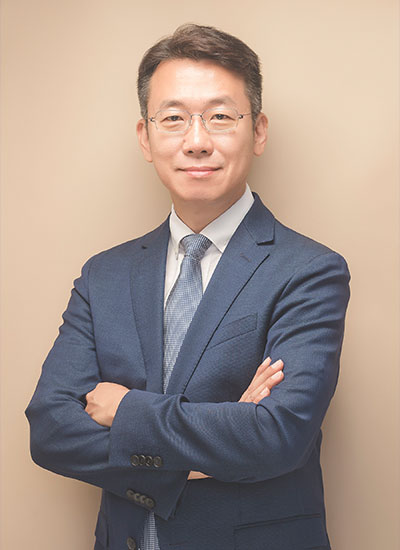Korea University Department of
Battery Engineering
Smart Factory
Korea University Department of
Battery Engineering
Smart Factory
Introduction

In the era of the 4th industrial revolution, the characteristics of future jobs are changing, and the talents required by society are changing. The gap between the capabilities that can be acquired in existing university education and the capabilities required by the future society is widening, and a new industry-academic cooperation model is required to reduce this. In the World Economic Forum, the Future of Jobs report makes it clear that future talent is talented in digital transformation.
Meanwhile, the battery industry, which has the highest growth rates today, requires a quick response to training battery professionals to support it. In particular, the battery industry, which is recording explosive growth, has no choice but to continue to build new factories around the world. To this end, it is inevitable to expand the smart factory as a solution to improve productivity per capita. Against this backdrop, the Department of Battery-Smart Factory at Korea University was launched under the sponsorship of LG Energy Solution.
The Department of Battery-Smart Factory conducts education and research on 'Battery Engineering', which develops AI-based battery materials and next-generation batteries, and 'Smart Factory', which studies smart factory security, digital twin, and process analysis. Since department education is designed and conducted in cooperation with LG Energy Solution, it is possible to complete a differentiated curriculum that strengthens basic capabilities in schools, receives field training in industries, and improves practical skills. You can also visit battery plants and partners around the world to experience the high-tech scene and gauge the future direction of the battery industry.
The Department of Battery-Smart Factory expects to accelerate the development of next-generation battery materials by conducting research closer to the field through close industry-academic cooperation and deriving problems at the beginning of the development stage through AI-based R&D methodology. It also utilizes systems that can be simulated in a virtual environment with digital twin technology. This is expected to create synergy in LG Energy Solution's global factory construction and operation by reducing risks and reducing response time to customer demand through the development of intelligent automation processes. To this end, we are working with leading companies around the world, including Siemens and Dassault.
Currently, students from various undergraduate backgrounds are conducting convergence research through organic cooperation in the Department of Battery-Smart Factory. Students from prestigious universities at home and abroad from various backgrounds, including Korea University, Seoul National University, Yonsei University, and UCLA, are preparing for tomorrow by enhancing their capabilities as the next generation leaders of the battery industry. We would appreciate it if you could support and join us in a sustainable future society that Korea University's Battery-Smart Factory department and LG Energy Solution will create together.
Head of Department of Battery-Smart Factory, Korea UniversityJoonho Lee
The Department of Battery-Smart Factory conducts education and research on 'Battery Engineering', which develops AI-based battery materials and next-generation batteries, and 'Smart Factory', which studies smart factory security, digital twin, and process analysis. Since department education is designed and conducted in cooperation with LG Energy Solution, it is possible to complete a differentiated curriculum that strengthens basic capabilities in schools, receives field training in industries, and improves practical skills. You can also visit battery plants and partners around the world to experience the high-tech scene and gauge the future direction of the battery industry.
The Department of Battery-Smart Factory expects to accelerate the development of next-generation battery materials by conducting research closer to the field through close industry-academic cooperation and deriving problems at the beginning of the development stage through AI-based R&D methodology. It also utilizes systems that can be simulated in a virtual environment with digital twin technology. This is expected to create synergy in LG Energy Solution's global factory construction and operation by reducing risks and reducing response time to customer demand through the development of intelligent automation processes. To this end, we are working with leading companies around the world, including Siemens and Dassault.
Currently, students from various undergraduate backgrounds are conducting convergence research through organic cooperation in the Department of Battery-Smart Factory. Students from prestigious universities at home and abroad from various backgrounds, including Korea University, Seoul National University, Yonsei University, and UCLA, are preparing for tomorrow by enhancing their capabilities as the next generation leaders of the battery industry. We would appreciate it if you could support and join us in a sustainable future society that Korea University's Battery-Smart Factory department and LG Energy Solution will create together.
Head of Department of Battery-Smart Factory, Korea UniversityJoonho Lee